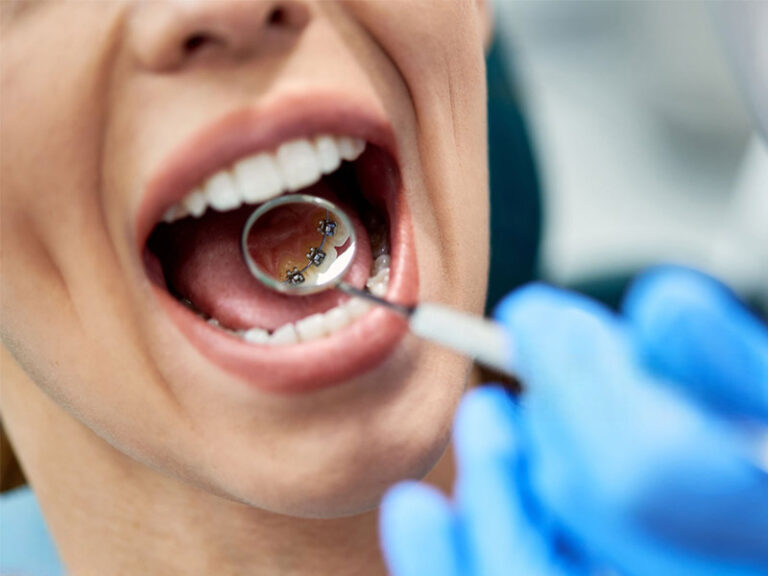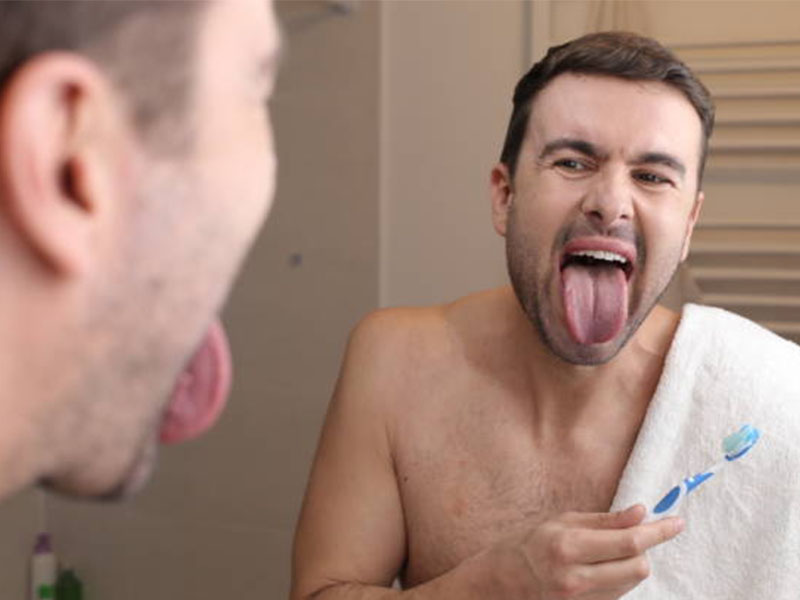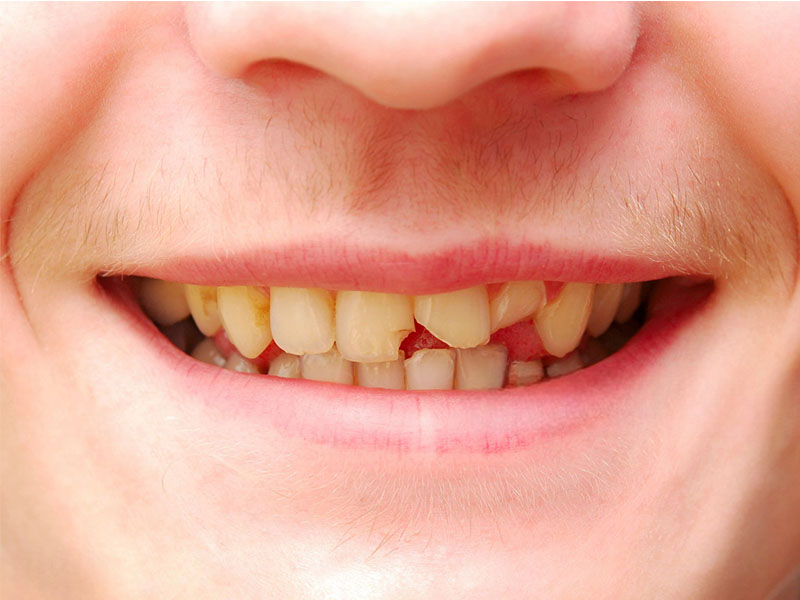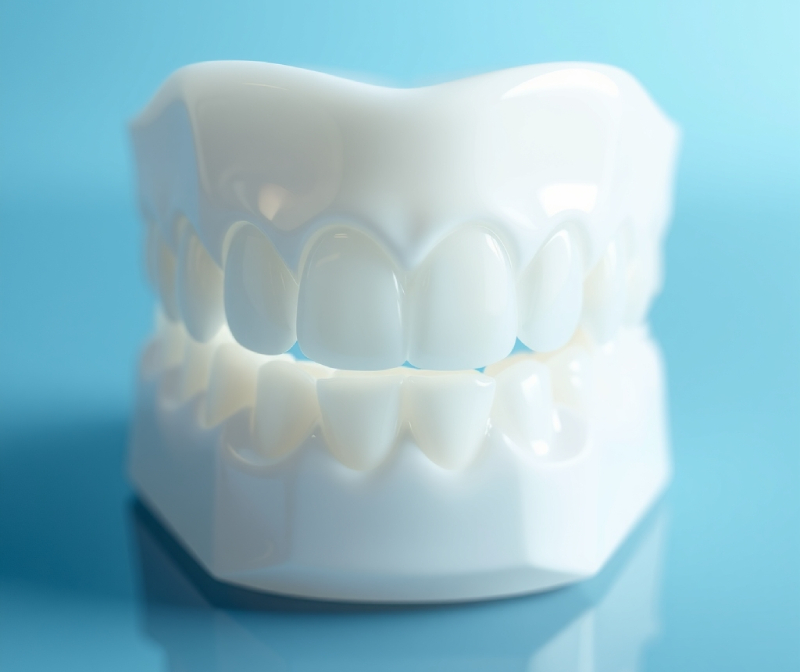
Get Rid of Bad Breath for Good: Your Simple Guide to Fresh, Confident Breath
Do you ever worry about your breath when you’re talking to someone up close? Maybe you skip certain foods, cover your mouth when you talk, or keep mints in your bag just in case. If that sounds like you, you’re not alone: bad breath (also called halitosis) is common—and honestly, can be pretty embarrassing. But millions of people deal with it every single day.
Here’s the good news: most of the time, you can fix bad breath, and you can start today. In this article, we’ll get right to the point, give you clear, simple tips, and help you feel sure about what to do next—whether that’s trying a new mouthwash or calling your dentist for help. Let’s tackle bad breath together and get your confidence back!
Table of Contents
What Causes Bad Breath?
Let’s be honest. If you’re here, you’ve probably thought, “Why does my breath stink even after I brush?” That’s a fair question, and trust me, you’re not the first to wonder.
There are lots of reasons your breath might smell. Some are easy to fix, like food stuck in your teeth. Others might mean you need to see a dentist. Let’s look at the main ones.
Not Cleaning Your Mouth Well Enough
Your mouth is like a busy city full of germs—some are helpful, some aren’t. When bits of food and dead cells stay in your mouth (especially on your tongue or between your teeth), these germs eat them and make stinky gases called volatile sulfur compounds (or VSCs). Think of a garbage can left out too long—no one wants that. This is what happens if you don’t clear out the leftovers in your mouth.
Why Poor Brushing Causes Bad Breath:
- Germs Build Up: Especially on the back of your tongue—an easy spot to miss.
- Food Stuck in Teeth: Leftover food starts to smell as it breaks down.
- Gum Disease: If you have sore, swollen, or bleeding gums, germs can hide in little pockets and create extra smell.
- Dry Mouth: Spit helps wash away germs and stink. If you don’t have enough, bad breath gets worse.
Food and Habits
Even the best brushers have trouble after certain meals. Let’s be real: garlic, onions, spicy food, and strong cheese can stick around. Coffee and alcohol can make your mouth dry, which also makes breath smell worse.
Other Habits That Make it Worse:
- Smoking/Tobacco: Not only does it smell, but it dries your mouth and raises your risk for gum disease.
- Low-Carb Diets: These sometimes cause “ketone breath”—a sweet or fruity smell that’s not dangerous, but very noticeable.
Medical Causes
Sometimes, the problem isn’t your mouth. Here’s where it gets trickier:
- Sinus Infections and Colds: Stuff running down your throat, tonsil stones, or chest infections can all make breath worse.
- Stomach Problems: Acid reflux (GERD) or other stomach issues can push up bad smells.
- Serious Illness (like Diabetes, Kidney, or Liver Problems): These can change your breath, too.
- Medicines: Some can dry your mouth and lead to bad breath.
Key thing to remember: Most bad breath starts in your mouth, but if you can’t figure out why it won’t go away, it’s time to check with your doctor or dentist.
Quick Ways to Get Rid of Bad Breath
Maybe you’ve got a meeting coming up. Maybe you’re going on a date. Sometimes, you just want fresh breath, fast. Here’s how to get it:
Drink More Water
Think of water as your body’s mouthwash. Swishing, sipping, and drinking water after eating helps get rid of food pieces and keeps germs from growing. If dry mouth is your problem, water is your friend.
Chew Sugar-Free Gum or Mints
Look for gum or mints with xylitol or sorbitol—these are good for your teeth, too. Chewing gets your spit going, which helps clean your mouth. Don’t have gum? Even munching on crunchy veggies like carrots or apples helps a lot.
Use Mouthwash
Everyone knows the fresh feeling after a rinse. But watch out: many mouthwashes just hide smells for a short time. You want a real mouthwash with things like chlorhexidine, zinc, or cetylpyridinium chloride—these help kill germs. Don’t overuse strong mouthwashes though, since some can stain your teeth over time.
Brush Your Teeth—and Your Tongue
It sounds simple, but don’t forget it! Take a travel toothbrush if you can, and scrub your tongue, too! Tons of germs sit on the tongue and cause odors. A tongue scraper costs little, and it works. Some studies say it can cut smelly compounds by 75%.
Long-Term Fixes: How to End Bad Breath for Good
So you’ve covered for now. But how do you keep bad breath gone?
Make Your Brushing Routine Solid
Let’s go over what really matters.
Brushing: Twice a Day, Every Day
Use fluoride toothpaste and brush the right way. Hard brushing isn’t the answer—be gentle, make small circles, aim the brush at your gums, and take two whole minutes. Electric toothbrushes can help if you’re quick or miss spots.
Flossing: Every Day. No Excuses.
Floss gets between your teeth where your brush doesn’t reach. Daily flossing almost always leads to less gum trouble and less stinky breath.
Don’t Forget the Tongue!
If you only remember one thing: clean your tongue. Use a scraper or the back of some toothbrushes. Start at the back and scrape forward, gently. This is where most of the trouble starts.
Use a Real Mouthwash
Pick a mouthwash that’s alcohol-free and has zinc, chlorhexidine, chlorine dioxide, or cetylpyridinium chloride. These actually lower smelly bacteria, not just mask odor. Swish for about 30 seconds after brushing and flossing.
Food Makes a Big Difference
Believe it or not, what you eat changes your breath.
- Go easy on smelly foods: No need to give up garlic forever, but skip it before interviews or dates.
- Eat more fiber and crunch: Apples, carrots, and celery clean your teeth as you chew.
- Try probiotics: Some new studies say these might help chronic bad breath by making your mouth bacteria healthier.
- Don’t skip meals: Not eating for too long slows down your spit and lets germs take over.
Beat Dry Mouth
A dry mouth is a smelly mouth, plain and simple. Spit is your natural cleaner.
Ways to Get More Saliva:
- Drink water often.
- Chew sugar-free gum or suck on sugar-free hard candies.
- Stay away from mouthwashes with alcohol.
- If medicines dry out your mouth, ask your doctor about things that help.
Quit Smoking and Tobacco
No surprise here. Tobacco makes breath smell all the time, stains your teeth, and leads to more gum disease and even cancer. If you’ve tried to stop but can’t, your dentist or doctor has programs that really work.

When to See a Doctor or Dentist
Sometimes, home fixes just don’t cut it. Here’s when to get extra help.
Call your dentist or doctor if:
- You’ve tried everything here for weeks, and nothing changes.
- You notice bleeding, sore, or loose teeth (could mean gum trouble or infection).
- You have a sore throat, trouble swallowing, or a bad taste that won’t quit.
- Dry mouth just won’t go away.
- You have serious health problems like diabetes or kidney trouble.
- Family or friends mention your breath, even after you brush.
What do the pros do?
- Check for and treat gum disease, cavities, or infections.
- Clean your teeth and gums better than you can at home.
- Look for trouble with tonsils, tongue, or dental work.
- Send you to other doctors if the problem’s not just dental.
Bottom line: If bad breath hangs around, don’t shrug it off. Sometimes it’s a sign your body is asking for help.
How to Keep Bad Breath Away
You got rid of bad breath—let’s keep it that way. It’s all about simple routines and habits.
Key Steps for Fresh Breath
- Brush and floss every day. Twice for brushing, once for flossing.
- Go to the dentist every six months for cleanings and checkups.
- Drink plenty of water.
- Eat healthy, with lots of fruits, veggies, and fiber.
- Cut back on alcohol, coffee, and sugar.
- Quit smoking and stay away from tobacco.
- Get a new toothbrush every 3-4 months, or after you’re sick.
- Clean any dentures or mouth guards daily.
Frequently Asked Questions (FAQs)
Q: Can bad breath come from the stomach?
Yes, but not often. Almost all bad breath (about 85–90%) comes from your mouth. Sometimes, stomach problems like acid reflux (GERD) or bugs like H. pylori cause it, but that’s rare. If your stomach acts up along with your breath, ask your doctor.
Q: Does tongue scraping really work?
Yes! Studies say scraping your tongue can cut smell by 75%. The back of your tongue is usually the worst spot for smelly germs.
Q: What’s the best mouthwash for bad breath that just won’t go away?
Go for a real mouthwash—one with zinc, chlorhexidine, or chlorine dioxide. These go after the germs, not just the smell. If you get dry mouth, stay away from anything with alcohol.
Q: How can I tell if my breath smells?
Oddly, it’s hard to know yourself. Try licking your wrist, let it dry, and then sniff. Or, floss your back teeth and smell the floss. Not fancy, but it works! Still unsure? Ask a close friend or your dentist.
Q: Do certain foods really cause bad breath?
Yes! Foods like garlic, onions, coffee, and spicy stuff can stick around. Foods like crunchy veggies, green tea, and yogurt with probiotics may help keep your breath better.
What the Experts Say
- Up to half of adults get bad breath sometimes. About 6% have it all the time.
- 85-90% of cases start in the mouth.
- Scraping your tongue can cut smelly compounds by up to 75% right away.
- Gum disease makes bad breath way worse. Fixing your gums almost always makes your breath better.
- More than half of people with breath trouble say it hurts their confidence. But the success rate for fixing bad breath is over 90% with the right help.
Sources: American Dental Association, Journal of Clinical Periodontology, British Dental Journal, studies on people’s lives with bad breath.
Healthy Tips: Starting Fresh
Let’s sum it up. How do you beat bad breath for good?
1. Brush, floss, and clean your tongue every day.
2. Drink water and chew sugar-free gum to keep spit flowing.
3. Watch what you eat: Go easy on strong-smelling foods before important things, and eat more crunchy veggies and yogurt.
4. Quit smoking, be careful with alcohol and coffee.
5. Keep regular dental visits—it’s the best prevention.
6. Go to your doctor if your breath stays bad, or you notice pain, bleeding, or a sore throat. Don’t wait around.
Bad breath can happen to anyone—but you can fix it. You should feel free to talk, smile, and laugh with confidence. Stick with these steps, and you’ll soon enjoy a fresher, healthier mouth. Not sure where to start? Your dental team is always happy to help.
Medically checked by [Your Clinic Name or Dental Professional]
Need More Help?
Still worried about your breath or have other questions? Book a visit! A quick chat with your dentist or hygienist can clear things up and help you get back to living—and speaking!—without worry.
References
- American Dental Association (ADA): www.ada.org
- Mayo Clinic: Bad Breath Causes & Remedies
- Journal of Clinical Periodontology: “The Role of Oral Bacteria in Halitosis”
- Studies on how bad breath affects people’s lives
Smile big—you’ve got this!








